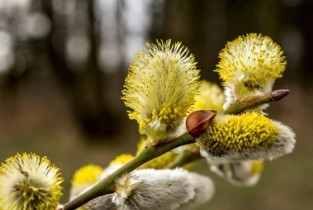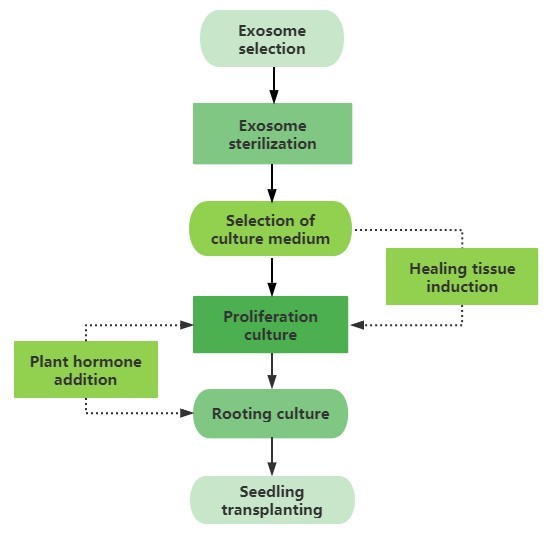Salix Plant Tissue Culture
 Blooming willow twigs and furry willow-catkins
Blooming willow twigs and furry willow-catkins
There are many species of Salix plants, each with
different propagation methods. Our Salix plant tissue
culture technology can meet the high market demand
for Salix seedlings.
Salix belongs to the Salicaceae, commonly known as willow, with more than 400 species commonly found in the boreal and temperate regions of the northern hemisphere. Salix plants are trees or creeping, cushion-like, erect shrubs. Branches cylindrical, pith nearly round. No terminal buds leave alternate, sparsely opposite, mostly lanceolate, pinnately veined.
Salix plant is a good ecological and excellent economic species, which can produce timber and other forest by-products, as well as improve and beautify the ecological environment, integrating economic value, ecological value, and ornamental value.
Tissue culture service
Salix plants have developed roots and are suitable ecological tree species which can protect the soil and restore the natural environment. Sexual reproduction of Salix plants is difficult, so most Salix plants are propagated by cuttings, but some Salix plants are difficult to propagate by cuttings. At the same time, the seedlings propagated by cuttings also have problems such as an underdeveloped root system and limited transplanting season.
Lifeasible has established an excellent clone tissue culture rapid propagation system, using tissue culture technology to propagate Salix plants in vitro, which can overcome these shortcomings and help you quickly obtain a large number of Salix plant seedlings to meet market demand.
There are many types of Salix explants, young stem segments, leaves, petioles with leaf bases, and roots that can be sent to us as explants. We will choose according to the ecological characteristics and tissue culture goals of the specific variety you need to reproduce quickly.
- Sterilization of explants
We will disinfect the surface of the explants with chemicals such as mercuric chloride, alcohol, sodium hypochlorite, and hydrogen peroxide. At the same time, bacteria carried inside the explants will be killed by adding antibiotics to the medium.
Few media such as MS, White, B5, and WPM are suitable for Salix plant tissue culture. However, the content of elements in different media is different, and the effects on plant growth at different stages are also different. We will select the more suitable medium for your entrusted project according to the experimental materials and cultivation stage.
- Transplanting test tube seedlings
The test-tube seedlings are transplanted into an autotrophic environment with variable temperature, intense light, and low humidity, and the growth environment undergoes excellent changes. Therefore, we will carry out the process of rooting and hardening before transplanting the test tube seedlings. Appropriate growth hormones, such as IBA and NAA, are added to the medium to help induce adventitious roots.

- Advantages
- Not limited by season
- The exceptionally well-developed root system
- Short growth cycle, fast reproduction
If you are interested in our services, please feel free to contact us for more information or to discuss in detail.
You want to sign a confidentiality agreement.
You have a specific plant species for your experimental needs.
You have a reliable and relevant cooperation project to discuss.
You are very interested in our project or have any questions.
You need an updated and detailed quotation.
For research or industrial use.

 Blooming willow twigs and furry willow-catkins
Blooming willow twigs and furry willow-catkins

